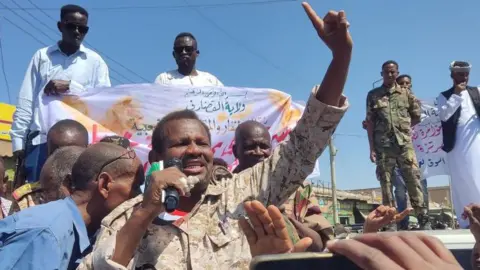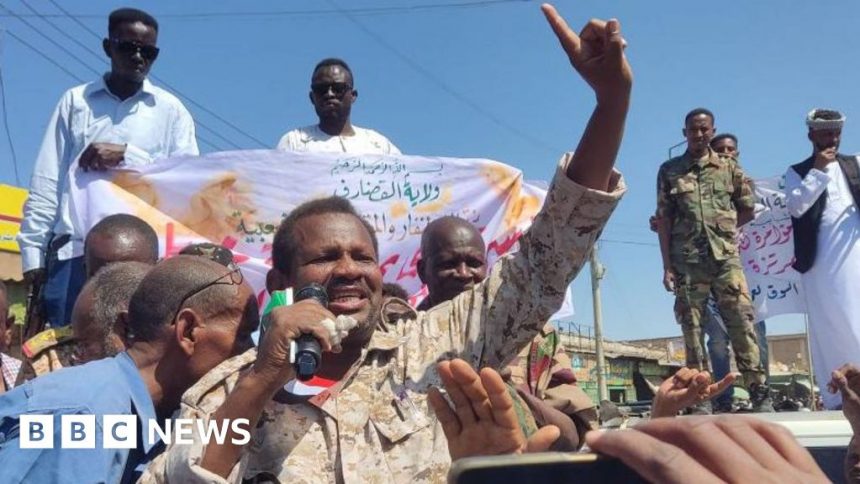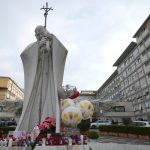Sudan army ends two-year siege of key city
 AFP
AFPThe Sudanese army says it has broken a near two-year siege imposed by the paramilitary Rapid Support Forces (RSF) on the key southern state capital of el-Obeid.
The breakthrough came hours after the RSF signed a political charter in the Kenyan capital, Nairobi, to establish a breakaway government in areas under their control.
The RSF and the army have been in a vicious fight for power since April 2023, which has killed tens of thousands of people and forced millions from their homes.
The fight has split the country, with the army controlling the north and the east while the RSF holds most of Darfur region in the west and parts of the south.
El-Obeid, the capital of North Kordofan state, is a strategic hub connecting the capital, Khartoum, to Darfur. This is the latest army advance in recent weeks following the recapture of several parts of Khartoum from the RSF.
There was jubilation on the streets as Sudanese soldiers marched into the city.
A military spokesman, Nabil Abdallah, confirmed the gains in a statement, saying army forces had destroyed RSF units.
Finance Minister Jibril Ibrahim said the move was a “massive step” in lifting the RSF siege on el-Fasher, the capital of North Darfur province, and would also allow the delivery of humanitarian aid to Kordofan.
Sudanese civil society activist Dallia Abdlemoniem told the BBC Newsday programme that the recapture of the city ” was “huge” and “significant”.
She said the RSF had “held the civilians captive for nearly two years” in the city.
She said the army was “making serious groundwork in terms of moving towards the west, which is where the RSF is mainly centred”.
- A simple guide to the Sudan war
- Sudan – where more children are fleeing war than anywhere else
- The two generals at the heart of the Sudan conflict
Both the army and the RSF have been accused of committing grave atrocities against civilians during the war, with their leaders being sanctioned by the US. In addition, RSF has been accused of carrying out a genocide in Darfur.
Both deny the accusations.
Kenya’s hosting of the RSF last week as it sought to form a parallel government was criticised by some human rights groups.
On Sunday, Sudan’s Foreign Minister Ali Youssef said his country would “not accept” any country recognising “a so-called parallel government”.
In response, Kenya’s foreign ministry said there was “no ulterior motive” in “providing non-partisan platforms to conflict parties”.
More about the war in Sudan:
 Getty Images/BBC
Getty Images/BBCGo to BBCAfrica.com for more news from the African continent.
Follow us on Twitter @BBCAfrica, on Facebook at BBC Africa or on Instagram at bbcafrica







